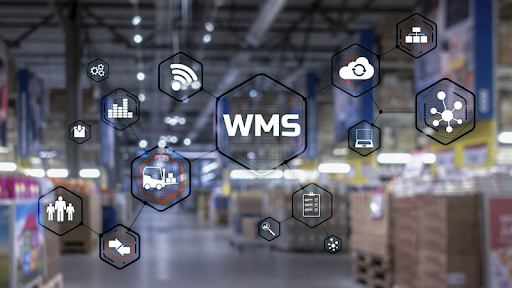Transforming Logistics Management: The Evolution towards Cloud-Based WMS Software

In the relentless pursuit of operational excellence, businesses are constantly seeking innovative solutions to optimize their logistics management processes. Amidst the ever-changing landscape of global commerce and consumer demands, warehouse management stands as a pivotal aspect of supply chain efficiency. Recognizing this, companies are increasingly turning to advanced technologies, particularly cloud based WMS software, to meet the evolving challenges of modern logistics. Cloud-based WMS software offers unparalleled flexibility, scalability, and accessibility, enabling businesses to optimize their warehouse operations efficiently and effectively.
The Imperative of Advanced Logistics Technology
In the intricate dance of supply and demand, logistics serve as the linchpin that bridges the gap between production and consumption. Whether it’s a brick-and-mortar store replenishing its shelves or an e-commerce giant fulfilling orders across continents, efficient warehouse management is crucial for maintaining competitiveness and meeting customer expectations.
Yet, traditional approaches to warehouse management, often reliant on manual processes and outdated software systems, are ill-equipped to navigate the complexities of today’s global marketplace. The need for advanced logistics technology has never been more pressing, with businesses facing mounting pressure to optimize inventory management, streamline order fulfillment, and enhance overall operational efficiency.
Embracing the Cloud: Unleashing the Potential of WMS Software
Enter cloud-based WMS software—a game-changer in the realm of logistics management. Unlike its on-premise counterparts, cloud-based WMS software operates on remote servers, accessible via the Internet. This fundamental shift in architecture offers a host of advantages, empowering businesses with unprecedented flexibility, scalability, and real-time visibility into their warehouse operations.
Scalability: Adaptability in an Ever-Changing Landscape
One of the most compelling features of cloud-based WMS software is its inherent scalability. In an era characterized by fluctuating demand patterns and seasonal peaks, the ability to scale operations seamlessly is indispensable. Cloud-based solutions allow businesses to expand or contract their warehouse operations dynamically, without the constraints of physical infrastructure or the need for costly upgrades.
Accessibility: Anytime, Anywhere Connectivity
In an increasingly interconnected world, accessibility is key. Cloud-based WMS software breaks down geographical barriers, providing stakeholders with instant access to critical data from any location, at any time. Whether it’s a warehouse manager monitoring inventory levels on a mobile device or a logistics coordinator overseeing order fulfillment remotely, cloud technology facilitates seamless collaboration and informed decision-making across the organization.
Cost-Effectiveness: Redefining the Economics of Logistics Management
In addition to its operational benefits, cloud-based WMS software offers significant cost advantages over traditional on-premise solutions. By eliminating the need for upfront capital investments in hardware and infrastructure, businesses can adopt a more agile and cost-effective approach to logistics technology. Pay-as-you-go pricing models ensure that companies only pay for the resources they consume, making cloud-based solutions accessible to organizations of all sizes.
Enhanced Efficiency: Automation and Optimization
Automation lies at the heart of cloud-based WMS software, driving efficiency and productivity across warehouse operations. From inventory tracking and replenishment to order picking and packing, automation minimizes manual errors, reduces labor costs, and accelerates throughput. Furthermore, advanced algorithms and machine learning capabilities enable predictive analytics, allowing businesses to anticipate demand fluctuations and optimize inventory levels accordingly.
Integration: Building Seamless Connections
In the interconnected ecosystem of modern business, integration is paramount. Cloud-based WMS software seamlessly integrates with other enterprise systems such as Enterprise Resource Planning (ERP), Transportation Management Systems (TMS), and Customer Relationship Management (CRM) platforms. This interconnectedness ensures data consistency, facilitates end-to-end visibility, and enables streamlined workflows across the supply chain.
Meeting Special Requirements: Tailoring Solutions to Unique Needs
While the core functionalities of cloud-based WMS software address a wide range of logistics challenges, businesses may have special requirements that necessitate customized solutions. Whether it’s multi-location support for distributed warehouse networks, integration with Third-Party Logistics (3PL) providers, or advanced analytics capabilities for data-driven decision-making, cloud-based WMS software can be tailored to meet the unique needs of each organization.
Conclusion: A Paradigm Shift in Logistics Management
In conclusion, the adoption of cloud-based WMS software represents a paradigm shift in logistics management—an evolution driven by the imperatives of agility, efficiency, and innovation. By harnessing the power of cloud technology, businesses can transcend the limitations of traditional warehouse management systems, unlocking new levels of scalability, accessibility, and cost-effectiveness. As the global marketplace continues to evolve, the strategic adoption of cloud-based WMS software will be instrumental in shaping the future of logistics management, enabling businesses to stay ahead of the curve and thrive in an increasingly competitive landscape
More info: For businesses considering the transition to cloud-based WMS software, it’s essential to conduct thorough research and evaluation to ensure alignment with their specific needs and objectives. Implementation strategies should be carefully planned, with considerations for data migration, staff training, and change management processes. Additionally, ongoing support and collaboration with trusted technology partners can further optimize the benefits of cloud-based logistics solutions.





Murissa Gallina
Nayali Socol
Leada Castellow
mexican drugstore online: mexican pharmacy online – mexico drug stores pharmacies
medicine in mexico pharmacies
http://cmqpharma.com/# mexico drug stores pharmacies
mexican rx online
I like your writing style truly enjoying this internet site.
canadianpharmacymeds com canadian pharmacies online legal canadian pharmacy online
mexico pharmacies prescription drugs: mexico drug stores pharmacies – medicine in mexico pharmacies
http://foruspharma.com/# mexican pharmaceuticals online
best india pharmacy: Online medicine home delivery – Online medicine home delivery
canadian world pharmacy buy canadian drugs cheap canadian pharmacy
mexico drug stores pharmacies: п»їbest mexican online pharmacies – mexican mail order pharmacies
canadian pharmacy 24h com safe: rate canadian pharmacies – legal canadian pharmacy online
http://canadapharmast.com/# canadian drug pharmacy
mexican drugstore online: mexican mail order pharmacies – mexico drug stores pharmacies
online shopping pharmacy india india online pharmacy Online medicine order
best online pharmacy india: mail order pharmacy india – indian pharmacy
reputable indian online pharmacy: п»їlegitimate online pharmacies india – top online pharmacy india
northwest pharmacy canada reddit canadian pharmacy legitimate canadian pharmacies
reputable canadian pharmacy: canadian pharmacy world – canadian discount pharmacy
https://canadapharmast.online/# escrow pharmacy canada
reliable canadian pharmacy reviews: global pharmacy canada – canadian pharmacy store
legit canadian pharmacy online: canada rx pharmacy world – canadian pharmacy online
http://doxycyclinedelivery.pro/# doxycycline pharmacy singapore
http://doxycyclinedelivery.pro/# doxycycline 20
http://clomiddelivery.pro/# cost generic clomid now
https://amoxildelivery.pro/# how to buy amoxicillin online
http://amoxildelivery.pro/# price of amoxicillin without insurance
https://doxycyclinedelivery.pro/# doxycycline generic
https://amoxildelivery.pro/# amoxicillin 250 mg
https://doxycyclinedelivery.pro/# purchase doxycycline online uk
https://paxloviddelivery.pro/# buy paxlovid online